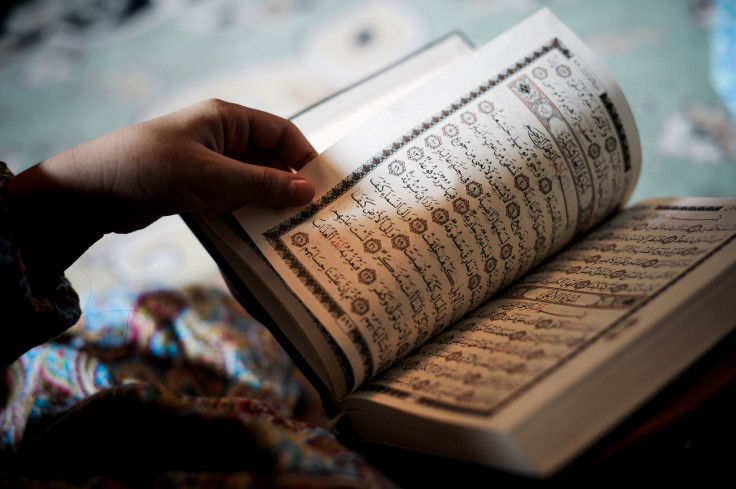Ramadan Twitter Campaign #AddAFemaleReciter Calls For More Women Voices Reading Quran

For Muslims, the holy month Ramadan isn’t just about abstaining from food and drink. It’s also about focusing on the Quran, the holy book Muslims believe was revealed during the month. To learn from and honor the holy book, many Muslims try to complete a full recitation of the Quran in Arabic during the month of Ramadan. And in the modern age, they often turn to recordings of the Quran being recited in Arabic for guidance.
But one thing most Muslims don’t find are women making these recordings. Sites like QuranExplorer.com and various podcasts almost always feature male “qaris,” or reciters, who melodiously recite the verses of the holy book.
Jerusha Lamptey, assistant professor of Islam and ministry at Union Theological Seminary, wanted to change that. That’s why she launched the #AddAFemaleReciter campaign this Ramadan on Twitter, to encourage sites and apps that feature Quranic recitations to incorporate female voices in their offerings. An online petition specifically lobbying QuranExplorer.com accompanies the effort.
Imagine how powerful it would be for more ppl to hear women reciting the Quran. Please sign this: http://t.co/kXb3soRhYa #AddAFemaleReciter
— Kayla (@krw18) June 29, 2015“This is an issue of representation and inclusion,” Lamptey told the Religion News Service. “There’s nothing that bars females from reciting the Quran. In fact it is incumbent on all Muslims to learn it and recite it daily without distinction in gender. But many women don’t hear or see people who look or sound like them reciting the Quran.”
Normally not a petition-signer, but I just signed this to ask @quranexplorer to #AddAFemaleReciter http://t.co/5etCZPSKr5 h/t @jerushatanner
— Hind Makki (@HindMakki) June 26, 2015Both Muslim men and women do learn to recite the Muslim holy book in Arabic, but not all Muslims agree that recitations by women should be public in mixed-gender company. Lamptey says that there are many skilled women reciters all over the world, and their voices should be heard.
“What kind of view says that men can listen to a woman’s voice and not be inspired toward God, but only inspired toward lust?” she said. The target of Lamptey’s campaign responded to her on Twitter, asking for “links to audio of female reciters so that we can evaluate it with some scholars.”
@jerushatanner AOA Can you provide us with some links to audio of female reciters so that we can evaluate it with some scholars.
— Quran Explorer (@QuranExplorer) June 24, 2015© Copyright IBTimes 2025. All rights reserved.





















